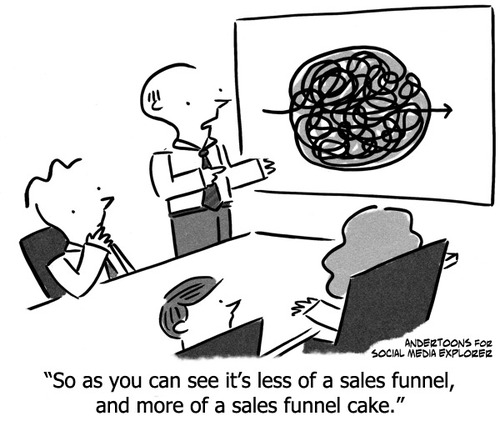When people hire for sales, they are looking for people triggers. What do I mean by people triggers? Those are the innate signals that hiring managers are seeking that conform to their view of a quality sales rep. More often than not, these are personality types rather than core behaviors and represent a a superficial view of a person and his or her ability.
The reason executives and managers tend to do this is we value people over process. The startup founder thinks if she hires the right rep with the stellar reputation, then her startup will blast off like a rocket. The sales executive thinks that if he simply hires “rock stars” then there is no way he is going to miss another quarter.
This is not so unfounded a belief as the handful of top performers in a sales force will generally will carry the rest of the team. Without those individuals, most companies would founder and eventually fold. The challenge however is finding those top performers and even if you do find top performers, there is little guarantee that they will continue to succeed.
This is where process comes in. Most people tend to ignore the process early on, but it is critical to understand the how and why sales happen and the mechanics of bringing a deal from lead to close before hiring sales people. What are qualifiers? What are the objections? What types of questions do customers ask and how do you answer? What messages are resonating? What are the sticking points in moving a deal forward? All of these speak to the need to understand the process.
The other aspect of understanding and establishing a process is that it informs the hiring process. Instead of hiring based on personality, you can hone in on the specific behaviors that are likely to result in quality hires that result in productive sales reps. Your questions during the interview can target critical areas of understanding of the sale, uncover potential skills gaps, and lead to a more robust understanding of how a candidate would sell according to your situation. Without knowing your process however, you will just meander into hypothetical situations that may not advance your understanding of how a sales rep might perform if hired.
Lastly, when you have a clear (or at least somewhat clear) perspective of your sales process, it helps bring the entire sales organization to a baseline competency. What I mean is that your top performers will always perform well, but the core performers also have a chance to make their quota. In the absence of innate ability, the process helps the core performers to learn faster and gain more confidence. Furthermore, management has a better sense of where bottlenecks during sales happen and how to coach the reps with more specific feedback. Without a process, all the coaching in the world cannot really help as it is all based on gut feel and misguided perceptions.
Getting the right people is obviously important in any role, especially in sales. You will always need those salespeople that can hit it out of the park quarter after quarter. But long-term success depends on understanding why you win business, hiring with more precision, getting everyone on the sales team to perform better, and having managers coach with more relevant and targeted feedback. Get your process on track and you will be on your way to addressing those issues and having more consistent revenues.
This article was originally published on Strong Opinions, a blog by Birch Ventures for the NYC tech startup community.




